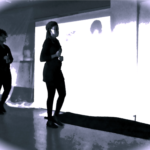| TITLE OF PAPER | Postcolonial Asylum: Black Female BodyBorders in the Republc of Ireland |
|---|---|
| AUTHORS NAME | Dr Nilmini Fernando |
| AFFILIATION | Independent Scholar |
| UNIVERSITY / INSTITUTE | University College Cork Ireland |
| nilminifernando1@gmail.com | |
| ABSTRACT |
The Republic of Ireland is a unique postcolonial State. The prototypical British settler colony, the Irish were colonizers and colonized, emigrants and immigrants, black and white. The white Irish maternal body has been constitutionally ‘policed, controlled and abused’; when black female bodies entered the scene, colonial technologies of gendered racism were deployed to force them through Irish borders as texts—or bodyborders— on which State-led anti-immigration and anti-asylum discourses were written and circulated. |
| BIOGRAPHY |
Nilmini Fernando is a Sri Lankan born postcolonial feminist scholar and educator with special interest in intersectionality, critical race and whiteness studies and decolonial feminist praxis. She has worked in Ireland and is currently based n Melbourne Australia, where her research has focused on financial abuse in the family violence context. Nilmini is currently developing a practice-based tool for intersectional practice in the Australian settler colonial context. A member of Australian Women and Gender Studies Association, Australian Critical Race and Whiteness Studies and Institute of Postcolonial Studies, she originated Loving Feminist Literature, a women of colour collective that performs texts by feminists of colour. |
| CO-AUTHORS |
Nilmini Fernando |
| KEYWORDS | POSTCOLONIAL ENCOUNTERS, ASYLUM, INTERSECTIONALTY, IRISH FEMINISM, PARTICIPATORY THEATRE |
| STREAM | 4. Along and across Borders: Proper Objects and Intersectionalities, 7. Exceeding the Actual: Visions and Spaces for Change |
| COMMENTS |
A short film is available to illustrate the look and feel of the project. |
| PICTURE |  |
| Webpage | https://ucc-ie.academia.edu/nilminifernando |
Home »

























